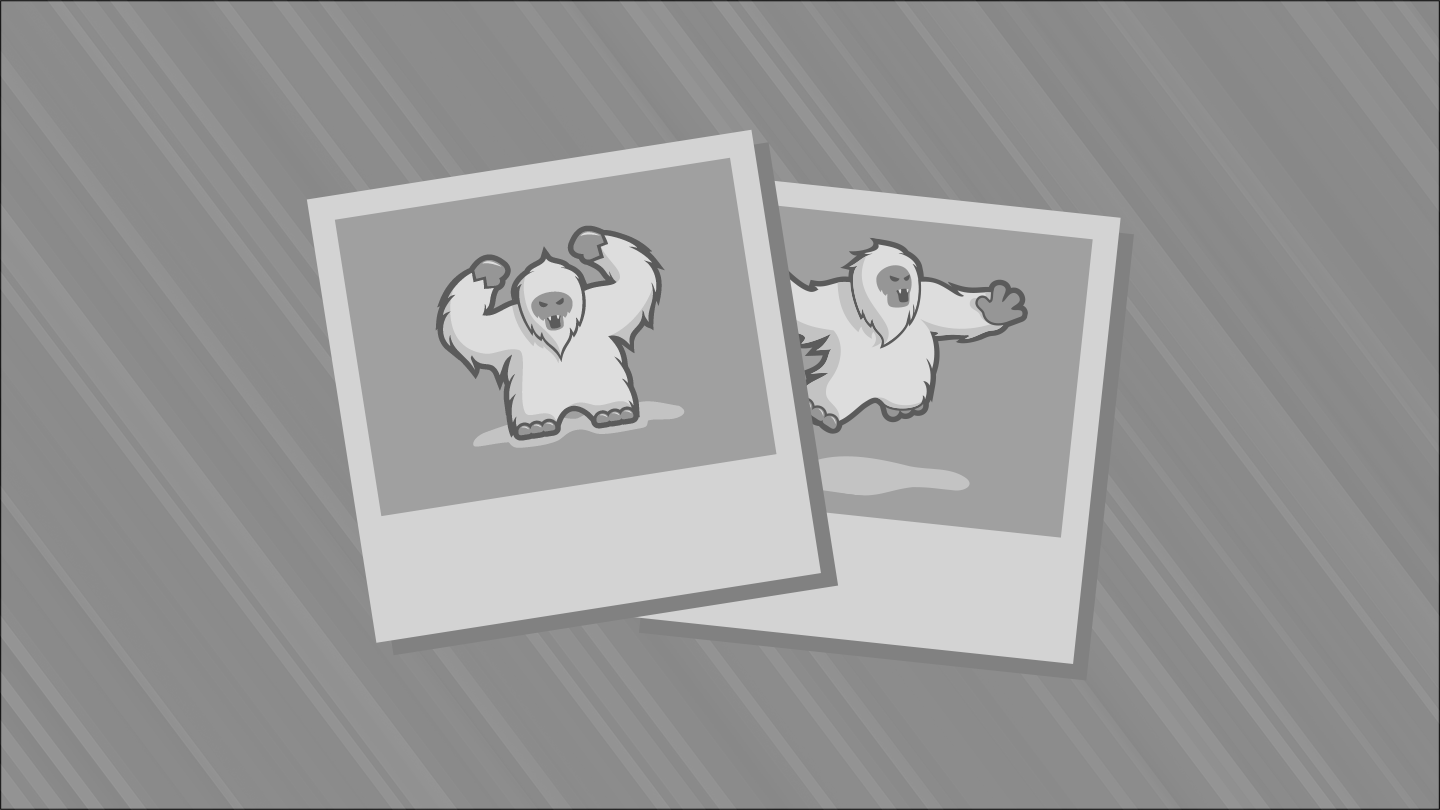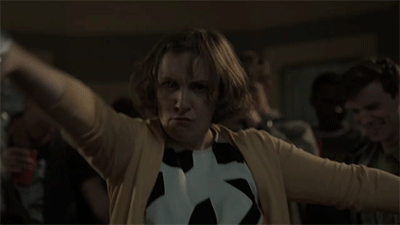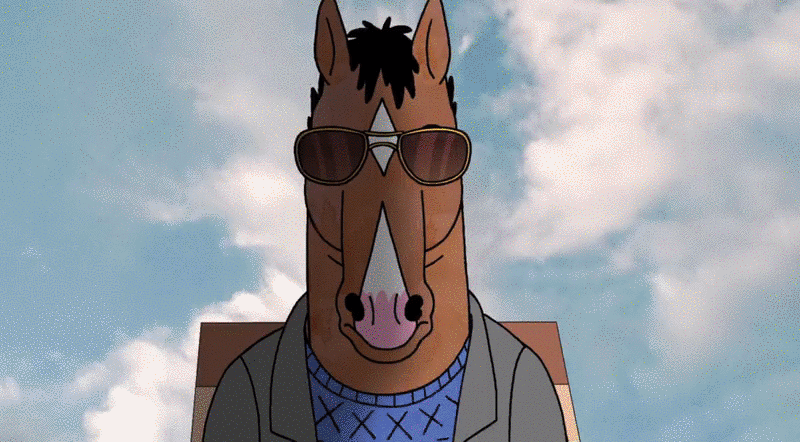The Year Of Hot-Take Television: How TV Got Its Social Conscience On In 2015
From 'Transparent' to 'Jessica Jones', 2015 was the year TV became about the issues.

“Guys!” we yelled every year since, oh, I don’t know, 2003. “Guys! TV is good now!” The discussion has, thankfully, shifted from one of quality to content and intent. No more do we need to ask if a show is ‘good’ — most programs that come up in conversation have at least a level of production, acting, and writing talent attached that equals anything elbowing for room at the multiplex.
Instead, we get to ask, “What is it trying to say?” It’s a question that reaches beyond loglines and hooky premises and instead taps into authorial drive and editorial reach. This year the easiest trend to spot is a topicality in content, reading like the cover features of a year’s worth of The Atlantic; big, broad, issue-based storytelling that appeals to introspective and investigative citizens (albeit ones who are still parking their ass on the sofa for regular doses of Gogglebox).
If a narrative-based show wants to break through the noise of multiple viewing delivery systems, year-round release schedules, a glut of big-name talent, multi-platform narrative schemes, and unparalleled availability of content, it has to find a prospective audience that is eager to engage with an idea that relates to them. Both the television programs that got talked about, and the conversations themselves were shot through a vigilant yet scattershot lens of social justice and personal growth. It covered topics that we can’t help but care about, because they affect us globally and locally, and flip that little switch in our brain that says “Hey I’ve got an opinion about this!” 2015 was the year of ‘hot take’ television.
So, what were the big trends in this new age of issue-forward programming?
–
We Need To Talk About Everything
Every morning this year you could be greeted by an online op-ed, congratulating a TV show for unbelievably, finally, ‘going there’. Racism, homophobia, gender inequality, sexual abuse, mental illness, institutional injustices, and other once taboo topics were intelligently addressed by the idiot box.
Orange is the New Black continued to tease the viewer with the drawn out romances of Piper, Alex, Daya and Benton, all while creeping in season-long explorations of institutionalised sexual abuse, workers’ rights, corporate mismanagement, and the exploitation of minority workers, alongside the episodic explorations of the character’s often tragic pasts. Most importantly, thanks to the casting of Ruby Rose, we found out that there might be an international conspiracy to refer to us as “dingo fuckers”.

The most obvious swing-for-the-gold-statues Important Drama was Show Me a Hero, a David Simons (The Wire) miniseries that succeeded in building the halls of local government into a Jenga pile of electrifyingly queasy compromise, even as it failed to deliver three-dimensional characters in the citizens that had to live within the political consequences. Still, Oscar Isaac could compellingly handsome his way through a phone book, which is lucky, as occasionally this nitty-gritty take on civil service felt like a protracted introduction to every bizarrely quaffed citizen of Yonkers.
Australian production The Principal created a uniquely Australian take on a universal topic. Although the show centred on a murder investigation at a school, the true villain was the lazy anaconda of the current education system, slowly squeezing the life out of learning before raising its head to strike out at an unfortunate soul. It depicted a sometimes ham-fisted mishmash of Islamophobia and homophobia as social stimulant for fear and mistrust, but it can hardly be argued that those sentiments aren’t all too present today.
The Code managed to tuck in accurate portrayals of how bluntly wielded policy, alongside corporate malfeasance and an overly ambitious surveillance system, could affect recent immigrants, indigenous communities, and the mentally ill. Unreal looked at women in the workplace, all while indulging in the soapy twists it satirises, and Jane the Virgin used the love it garnered for its central family to harshly critique America’s immigration policies.
The biggest surprise of the year might have been Jessica Jones, proving against all odds that a superhero TV show could actually manage to be more than whiz-bang gadgets and cheeseball one liners (though there were still a few too many of those), but a nuanced and empowering story of abuse and recovery. Also: the actual sexy sex.

–
Trying To Connect IRL
The ‘thinkpiece on a topic inspired by TV’ certainly existed before Girls, but it’s hard to think of a show that has done more to establish these types of conversations. Its examinations of modern relationships in an era of dating apps, widely consumed pornography and post-feminist self- and culturally-imposed expectations has become a blueprint for what we expect from dramedys, sadcoms, traumedys, or whatever else you want to call half-hours of TV that leave you laughing and weeping in equal measure.
Lena Dunham’s original recipe masterpiece continued with wit and style, all while allowing its characters to fail upwards at their individual paces. Also, thank you for a whole new range of dance gifs.

You can see its influence in the anti-romcom You’re the Worst, which contained a season long arc about dating while depressed, and Aziz Ansari’s Netflix smash Master of None. The latter expanded Ansari’s stand-up tested breezy analysis of contemporary dating to also investigate racism in media and inter-generational immigrant relationships, sometimes with a delightfully light and truthful touch (the perfect short film ‘Mornings’) and sometimes with an after school special sledgehammer (the groan-worthy ‘Old People’).
Few shows come close to Girls’ generosity with their support casts as Please Like Me, and this year Josh Thomas and co. are making the most out of their ensemble. Tom’s malaise has turned to self-analysis and crafting, resulting in perhaps a few too many twee piñatas, but also a deeper level of conversation between he, Josh, Claire, Arnold and the show’s secret, heartbreaking, weapon Hannah Gadsby. The show’s insistence on playing mental illness as simply a part of life is commendable, and the usage of lube in sex scenes left butt-stuff lovers cheering.
Transparent and Catastrophe continue to be the most honest shows about relationships on television. One looks at the most mundane type of relationship, endlessly portrayed on television in the past, but conjures bright, sparkling, heart wracking witticisms each week. The other keeps showing us uniquely way that people can come together, even as they try to understand themselves. They’re both flat-out treasures.

“YAS QUEEN.”
–
Ennui and Introspection: Or, Do I Even Have A Soul?
If we weren’t grappling with all that was outside us we were introspectively mooning away on the ever-present itch of ennui. Is this all there is? Rectify and The Leftovers examined religiosity from opposite angles – one grounded and quiet, the other bombastic and soaring in scope. The characters on Rectify, the Sundance channel’s quiet, tone poem of a series, never stop seeking and questioning the existence of God, in every eyelash flicker of a small moment, as beautifully enacted by Aussies Aden Young and Adelaide Clemens.
The Leftovers followed a middling first season with a bonkers sophomore run, flashing through thousands of years of allegorical time and space, at such a rate that pop culture outlets were left questioning leading religious experts as to the meaning of the emotionally fraught shemozzle. I made it further into The Leftovers than I did Glitch, where I felt an over-reliance on everyday-ness in casting and setting led to a bland serving of average, but many others were bigger fans of the back-from-the-dead mystery than I was, and it’s hard to fault a show so willing to look at the interconnection of grief and history.
Somewhat fittingly, we sent the last of the Golden Age of Television shows off not with a bang, but an ‘Ommmm’, as Don Draper once more spotted the future and packaged it ever so neatly in a single-serve bottle. Mad Men passed the boozy, existential Lothario mantle to an animated horse, and though I sometimes struggled with Bojack Horseman as an essential comedy (please explain to me the point of Todd, the elevated-to-co-lead Cousin Oliver of an otherwise pretty great ensemble), it completely succeeded as a smack-to-the-gut challenge for us all to find meaning in life, one day at a time.

–
Matt Roden works at non-profit writing centre Sydney Story Factory, and co-hosts Confession Booth. His illustration and design work can be seen here.